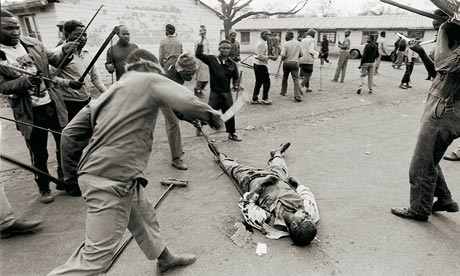Salacious photos are not something to generally be given the time of day. When the topic comes up as part of another 'scandal' in politics or a celebrity's life, I tend to shake my head and wonder what the person was thinking.
Notwithstanding this, a subplot running through this week's 'The Newsroom' episode was cause for reflection, particularly around this idea (or myth!) of privacy in today's world.
The subplot in question was explosively introduced in the opening scene. Nude photos of one of the characters, Sloan (a respected TV anchor), had been posted up on a site. These photos quickly went viral, and the channel is left to deal with the results. The interesting thing about these photos was that they were taken with her consent by an man she was dating and trusted implicitly at the time. When she dumped him, he took the due 'revenge' he felt was 'owed' to him through by utterly humiliating her.
'I am feeling something very I don't know how to describe right now', Sloan says on the show.
Betrayal perhaps? Insecurity? Utter helplessness? One can only imagine what it must feel like to have a truly intimate moment be broadcast online.
Her confidante at the time said it was rage - or will quickly turn into rage. Sloan finishes the episode in the boardroom of said jilted lover, punching him out and getting a little revenge of her own.
***
There are a number of interesting readings of this plot. Sloan's character is a genius; she's a well respected economist and commands audiences of hundreds of thousands. Surely, a thirty year old highly educated woman wouldn't put herself in this situation. Surely she would think to delete identifying photos if they were taken, even if she had consented?
Well if recent history is anything to go by, people do very silly things with cameras and phones without seeming to think about the consequences (or in the case of Anthony Weiner, even seeming to care). In this case however, Sloan wasn't doing anything technically 'wrong', so that argument is less substantial. It does raise the question about the line between an individual's public and personal life though, particularly in an age where this is becoming increasingly blurred.
She sights her implicit trust in this guy as the reason she didn't expect this sort of revenge. 'It wasn't a bad breakup - but even if it were, would this be okay?!', she asks, and rightly so! Humiliation and the essential defamation can regularly - and do regularly - annihilate reputations. We all know that reputations are the easiest things to damage and the most difficult to repair. So the act of distributing the photos we can agree, is immoral.
Is it criminal?
Whose responsibility is it to ensure these things don't happen?
Is your privacy always your individual responsibility or should is there an implicit trust in relationships with people - and institutions - that should also bear part of the burden?
It feeds into a larger question about an individual's right to privacy, particularly with the exposing of PRISM, the actions of the NSA and even the likes of Google implying that privacy online is a myth.
Unfortunately, it is increasingly difficult to effectively operate in this society without being online. So how does one walk the line? Are we all to always be on-guard and take precautions, accepting that being selective about what we share - even to our closest friends - is never really actually private?
What will happen when people growing up in this online society become leaders of state? Will there never be any surprises because everything is already online? Will our moral appetites change because we become accustomed to every single infraction being displayed and obsessed with the world over? Or will there be an industry based around the erasure of online profiles to give people an opportunity to 'start afresh'.
What do you think?
***





